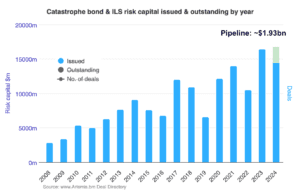Teal Tuesday – Self-Management

It’s another week and another Teal Tuesday! As discussed in our last blog post ‘Introduction to Teal’ (have a read if you haven’t already), the three core principles of Teal set out by Laloux are self-management, wholeness, and evolutionary purpose. Today’s blog post is dedicated to ‘self-management’, how this fits in with the wider Teal structure, and how we at Konsileo implement it in everyday working lives.
The Concept
So, what actually is self-management? Essentially, it gets rid of the traditional top-down management structure. Instead of a pyramid, the company becomes a network of inter-connected relationships with no hierarchy. Workload then becomes an individual’s responsibility, with no influence from a middle manager delegating what tasks should be done and when. Self-management relies on trust; trust in your colleagues to do the work they need to do to the best of their abilities and trust in the company and its structure that it will support you in your role. Targets become general and are not the focus of your everyday work life, though naturally some industries still rely on some form of targets in order to operate. By removing the presence of managers, there is freedom to choose where your efforts are placed. The company atmosphere has the space to transform from competitive to supportive.
The goal of having no power hierarchy is, in Laloux’s own words, “not to make everyone equally powerful, but to make everyone fully powerful.” Once you’ve removed the hierarchy, the complexity of the organisations ‘living system’ becomes easier to deal with and frees up time and resources for new and innovative ideas. It opens up your work to new possibilities and opportunities because you don’t have the same pressure to adhere to very tight parameters. You are able to regain a sense of control over your work instead of your work controlling you. This is a catalyst for reigniting a passion for work; you’re finally able to do what you do best and in the way that you want to. For instance, our brokers are in control of their own books and where they place business. Without strict targets looming above them, we trust them to make the right decision by their client and provide the best, all-encompassing cover as opposed to just the most expensive to hit a target1. Self-management not only positively impacts colleagues, but their clients given more time and opportunity.
Having no management structure does not mean that there is no structure at all, however. This is still a corporate environment and so it still requires some level of organisation and set processes. For self-management to be successful, there must be a clear base of support upon which colleagues can build and work from.
For one, decision making becomes a bit trickier to figure out without a clear ‘leader’. A key idea within Laloux’s book is that anyone can make a decision but they should first seek advice from people who have the expertise on the topic and anyone who will be meaningly affected. The goal here is not to make a watered-down compromise that ultimately doesn’t achieve anything at all but is instead to make the most informed decision possible. Expertise is abundant in any company and should be seen as a key resource in driving the company forward through thoughtful decision making. The great thing about Teal is that you do not have to jump through hoops to get the meeting with the ‘expert’ approved, all it can take is a simple message or a one-off call on a Wednesday afternoon that was set up that morning. This facilitates good, clear, fast decision making and keeps the ball rolling within the company.
Performance management also needs to have a clear structure. It may be easy for some people to take advantage of the self-management principle, taking the freedom but not the responsibility. In a traditional corporate environment, managerial pressure is the main driver of performance – targets are everything and must be hit. Teal environments on the other hand run off intrinsic motivation that is kept in check by peer emulation and market demands. By creating a space for collaboration and celebration, the motivation within the company is kept at a natural high. The company must also have the ability to see who is underperforming and then take the appropriate actions; having an open, transparent system makes this a lot easier to spot. Performance management meetings are all too often strict and unempathetic, giving only criticisms and leaving the colleague perhaps even more unmotivated than before. Instead, such meetings should be taken from an empathetic starting point, creating space to have deep, meaningful, constructive conversations.
How Konsileo Does It
Now that the basic concept of self-management has been established, we can now delve into how Konsileo adopts these practices and translates it for the world of insurance. As mentioned (briefly) above, our main self-management practice is the fact that our brokers run their own book. Not only that, but we have removed a lot of the repetitive admin tasks commonly found within insurance broking, freeing up our Client Director’s time and energy. The Central Team provides the system and support for our brokers to go out and do their jobs to the best of their abilities. We do not specialise in any one particular industry – if it is commercial lines and our brokers have the markets available to place the risk, then they are able to take on any client and their business. By having no strict, over-the-shoulder management, our brokers have more time to go out and meet clients and more time and freedom to find the right cover and policy that will truly protect their business.
Decision making at Konsileo is relatively simple. As we are a nation-wide company, we all work through Teams (though there is always the opportunity to set up an in-person office if that’s how one works better). Our Teams has multiple Channels that everyone has access and can contribute to. Everyday our Client Directors are posting questions and queries on how to place a business and within half an hour you get responses from multiple different people. The experts have been consulted; the decision can then be made on behalf of the client. We also have the structure in place for our Client Directors to collaborate on cases. They do not need to have prior approval in order to collaborate, colleagues decide amongst themselves how to operate such cases. More recently, we have set up Hubs and Practice Groups where our colleagues from the same area are given a budget to meet up, have some lunch, and discuss what’s going on in their work. It helps facilitate face-to-face meetings and provides a space for people to seek advice. The meetings are run entirely by the Client Directors themselves and they rotate the roles within the groups with every meeting, ensuring fairness. We also have fortnightly ‘Pulse Calls’, with the idea being that every two weeks we check the ‘pulse’ of the company to ensure everything is running smoothly. During these meetings, our Client Directors share what they have been up to, what businesses they’re currently looking after, and ask for any advice from their fellow Client Directors. It helps everyone keep in touch with each other and how others are performing, going back to the idea that intrinsic motivation is facilitated by peer emulation.
Performance management should also run off intrinsic motivation. To aid this process, we have coaches in place. Coaches aid their coachees in professional and personal life, giving impartial, unbiased advice based on experience. It is important to have someone that you can turn to for industry-specific advice within a company without it being a boss; a boss-employee interaction is almost always going to remain surface-level to maintain the professional relationship. By having a fellow colleague as a coach, it provides a safe space to express concerns. Another area is that of incentives; even Teal organisations should have something in place. At Konsileo, we give everyone a base salary in addition to 49% commission. This ensures that our Client Directors hard work is being truly rewarded, with the idea that the work you put in is equal to what you receive from the company. We also have a bonus system in place that is starting to really give back to our Client Directors. In terms of difficult conversations, we have our own in-house HR team, we call it the Humans with Resources (HwR) Team, that understand the values and principles of Teal. Our HwR team understands what the company is truly about and can make the correct decisions and have constructive conversations based on that structure.
There is just one thing that hasn’t been discussed yet – that of our colleague’s personal lives. No, not in a creepy, must-share-everything kind of way. One of the main benefits of becoming self-managed is the time it gives back to you. You can decide if you need an afternoon off and make up the time later in the week. You can decide if you want to start work earlier in the mornings and finish a bit earlier in the day. You can decide what working schedule works best for you. It is something that is especially important for our colleagues with families and young children. The school-run suddenly becomes a lot less stressful if you don’t have to let your boss know what you’re doing. There is also no expectation for people to answer messages in the evenings, weekends, or during time-off. There is a basic respect that runs through the entire company. It gives our colleagues the opportunity for a perfect work-life balance that works for them and their schedules. By having life separated from work, it gives the reset we so desperately need that, overall, helps maintain passion and motivation.
If you’re self-motivated and like the idea of managing your own book, get in contact with Chris or Prina for a confidential chat and to find out more about working for Konsileo.
Our Client Directors are expected to cover costs until they break even, and after they reach this point they can receive bonuses – essentially, we do have some form of targets, but they do not necessarily dominate everyday working life.






